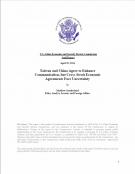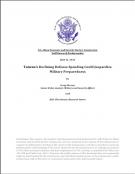×
Filter Results
Filter Results
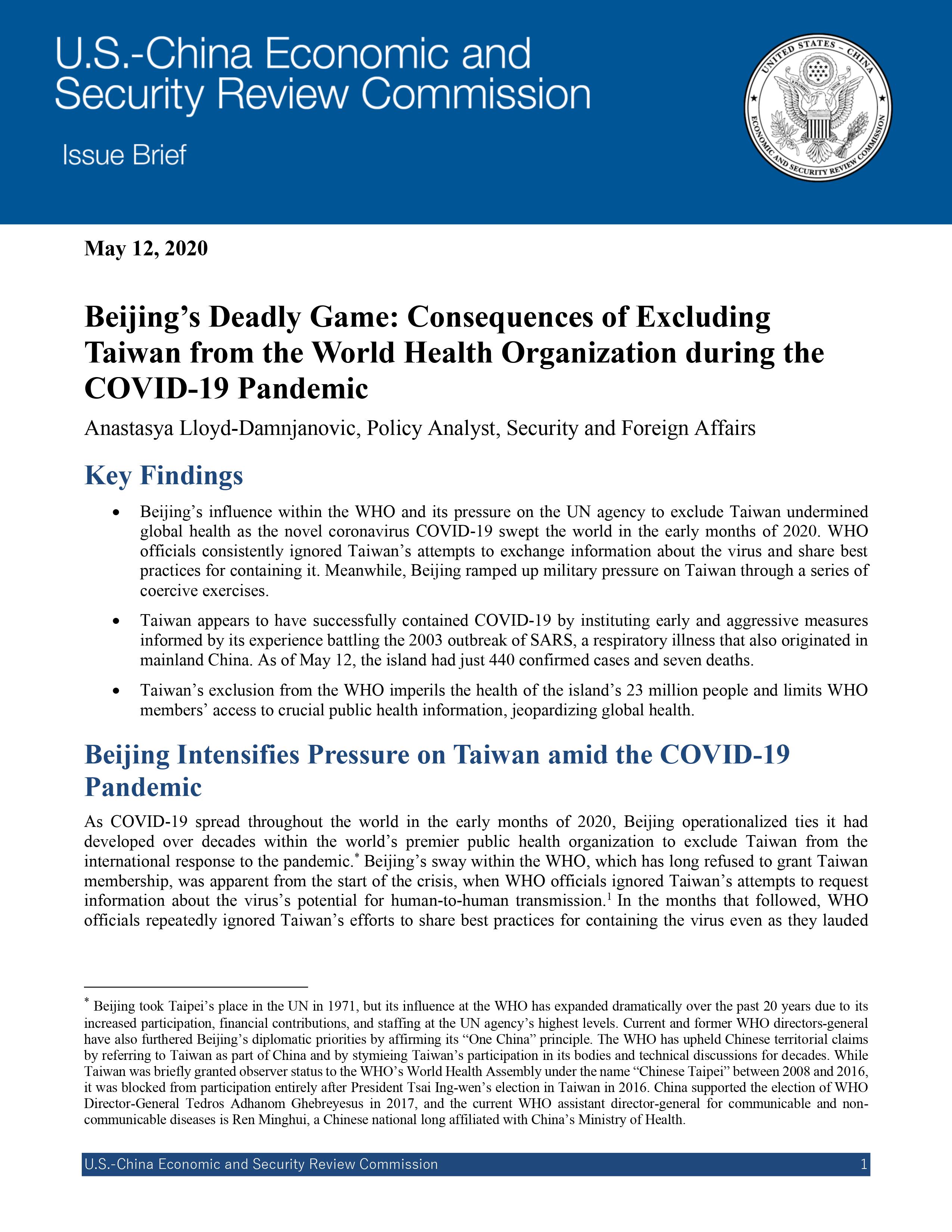
Issue Brief
This report includes the following key findings:
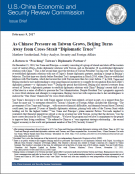
Issue Brief
In December 2016, Sao Tome and Principe—a country consisting of a group of islands and islets off the western coast of central Africa—broke diplomatic relations with Taiwan, and re-established diplomatic relations with China. The issue brief describes what happened, what it means for Taiwan, and how it fits into a series of measures that Beijing has taken to pressure Taiwan since the election of Taiwan’s President Tsai Ing-wen.
•This is the second time since President Tsai’s election that Beijing has re-established diplomatic relations with one of Taipei’s former diplomatic partners—of which it now has only 21—marking a change in Beijing’s behavior. In 2008, Taipei and Beijing reached a tacit understanding to stop competing for recognition from each other’s diplomatic partners—a “diplomatic truce.” During the period that followed, Beijing also rejected overtures from several of Taiwan’s diplomatic partners to establish diplomatic relations with China.
•Taiwan’s diplomatic relationships are significant for symbolic and practical reasons. Although, Taiwan almost certainly gains more from its unofficial relations with countries that have extensive international influence, such as the United States, diplomatic relations are an important component of Taiwan’s toolbox for maintaining a presence on the international stage.
•Despite President Tsai’s pragmatic approach to cross-Strait relations and attempts to compromise, Beijing views her with suspicion due to her unwillingness to endorse the “one China” framework for cross-Strait relations. Other measures that Beijing has taken to pressure Taipei since President Tsai’s election include suspending official and semiofficial cross-Strait communication and meetings and excluding Taiwan from meetings of international organizations, among others.

Issue Brief
On January 16, 2016, Taiwan held its presidential and parliamentary elections. Focusing on economic and local issues in the campaign, the Democratic Progressive Party (DPP) presidential candidate Tsai Ing-wen and her running mate Chen Chien-jen won the election with over 56 percent of the vote, while the traditionally pro-independence DPP captured an outright majority in the Legislative Yuan (LY) for the first time in Taiwan’s history, winning 68 of 113 seats. With the DPP’s victories in the presidential and LY elections, the party can pursue its economic and cross-Strait goals. This issue brief analyzes the results of Taiwan’s elections and discusses the implications of the elections for cross-Strait relations and the United States.
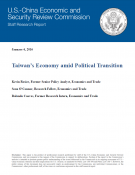
Staff Paper
Leading up to the 2016 election, Taiwan’s electorate has grown largely dissatisfied with the state of the domestic economy and increasingly worried about Taiwan’s growing dependence on China. Amid stagnant growth and wages, the Democratic Progressive Party (DPP) has focused its campaign on improving Taiwan’s domestic economy through expanded social welfare benefits, a higher minimum wage, and new local sources of innovation. Meanwhile, the economic platform of the Chinese Nationalist Party (Kuomintang, or KMT) has largely been defined by promoting Taiwan’s external economic relations, especially with China, as a means of supporting export-led growth. This report provides an objective review of major economic indicators in Taiwan, and evaluates the implications of political transition for Taiwan’s economic relations with China, the United States, and the international community.
Staff Paper
This Staff Report assesses the political realities that have limited Taiwan’s participation in global fisheries management, and the ways by which Taiwan has leveraged the size, geographic range, and technical capabilities of its fishing industry to take modest and pragmatic steps to expand its participation in bilateral, regional, and international fisheries-related agreements.
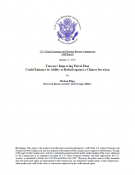
Staff Paper
This report examines recent upgrades to Taiwan’s patrol fleet and implications for Taiwan’s security.
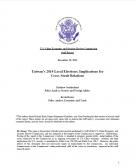
Staff Paper
On November 29, 2014, Taiwan held a series of local elections for 11,130 positions, including mayors, county magistrates, city and county councilors, township chiefs, and village and borough chiefs. This staff report provides an overview of the election results and assesses their implications for cross-Strait relations from now until Taiwan’s presidential election in 2016.

